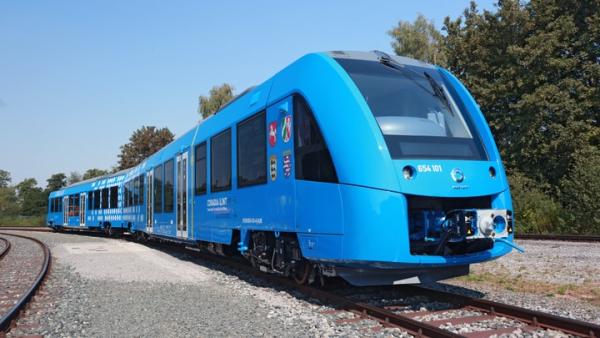Germany to Launch World's First Hydrogen Powered, Zero-Emissions Train
- November 25 2016
- 3 min read
Germany to Launch World's First Hydrogen Powered, Zero-Emissions Train

Germany it set to launch the world's first hydrogen-powered, zero-emissions train which is scheduled to go into service in Lower Saxony, in northern Germany. It is the first train of serial production that is powered by a fuel cell and emits nothing but steam and condensed water, can travel longer distances, and will be produced in large quantities. This ground-breaking innovation is a much quieter, eco-friendly alternative that could mean the end of the heavy polluting, diesel-powered trains – a revelation for the environment and Mother Nature.
The Coradia iLint – a 300-passenger train manufactured by Alston – will operate on the Buxtehude -Bremervörde- Bremerhaven - Cuxhaven line starting December 2017. The first train in operation will only run a short, 60-mile (96-kilometer) route, but Lower Saxony has already ordered 14 of the trains from Alstom. They have also signed an agreement to purchase 60 additional locomotives if they are deemed a success, the Die Welt reports.
Germany alone has more than 4,000 diesel-powered train cars, according to Alstom, and about 20% of all of Europe's current rail traffic is hauled by diesel locomotives according to the European Union. "Alstom is proud to launch a breakthrough innovation in the field of clean transportation," Alstom chairman and CEO, Henri Poupart-Lafarge, said in a statement. "It shows our ability to work in close collaboration with our customers and develop a train in only two years."
These zero-emissions trains can run at a maximum speed of 87 miles per hour and cover a distance of 497 miles. Any energy that is not used, gets stored in Lithium batteries connected to the bottom of the train's car. And further testing will be carried out by the end of the year before it opens up to the public next year.
Alston's train has also attracted interest from other European countries including the Netherlands, Denmark, and Norway.
Gain access to Orders, Tracking, Custom Options and Much More!